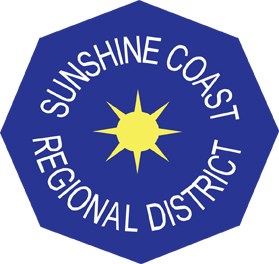Most functions are seeing surpluses, but transit and green waste have deficits, according to a six-month review of the Sunshine Coast Regional District (SCRD) budget.
Directors discussed the review at a July 26 corporate and administrative services committee meeting. According to the report, “revenues for operations in most functions are within the anticipated range,” and “the majority of functions are in a surplus position.”
Regional solid waste, landfills, transfer stations and recycling services were included in the review and chief financial officer Tina Perreault said the service is expecting a “conservative surplus” at year end. The report found that more waste is going into the landfill, which is causing higher expenditures than budgeted for, but tipping fee revenue is also higher than budgeted.
But that’s not the case for the green waste service, which Perreault said “continues to exceed funding available.” She said the green waste service, which is paid for via taxation, is expected to see a $30,000 to $50,000 deficit for the program.
To deal with the costs, staff suggested increasing the funding for 2019 and covering any deficits by taxation versus a tipping fee. Green waste deals with yard trimmings but not organic food waste, inorganic material, garbage or construction waste.
During the discussion, Roberts Creek director Mark Lebbell asked about using a coupon system to offset costs.
Area A director Frank Mauro noted the “recurring theme” of escalating green waste costs. “I don’t want to discourage people from using green waste facilities,” he said. “However, there is always suspicion when there is escalation that perhaps commercial folks are using it and getting by as residential.”
West Howe Sound director Ian Winn shared Mauro’s concerns that facilities are abused by commercial operators.
Fees also came up in a discussion about transit, which saw fare sales increase 10 per cent year over the year. But revenue from those fares still isn’t enough to make up for the cost of the expanded service. A weaker ad sales market has also led to a decrease in advertising revenue. Other costs in the service included higher than budgeted wages and benefits and “unanticipated operational costs,” all of which are contributing to a projected year-end deficit of between $70,000 and $100,000.
“We continue to live beyond our means for the transit service,” said Winn of the $2.5-million budget for the service, adding that the feedback he gets from West Howe Sound island residents is that the amount they pay into the service is a “tax grab.” Winn voted against the transit expansion, which was introduced in 2017, and involves the addition of new buses and hourly service from Langdale to Sechelt.
Staff also noted that building inspection is seeing a large surplus with activities related to permits. “Revenues are much higher than anticipated,” said Perreault, and they are expecting a surplus at year-end.
During the meeting directors also reviewed long-term debt, which as of June 30 totals approximately $12 million for capital projects and equipment projects. Debt has been decreasing at the SCRD since 2011. Included in those projects was the expected AAP metering debt of $6 million, which failed. Other debt items included the $5-million Chapman Lake drawdown project, regional water vehicle replacements and Vaucroft dock repairs. The SCRD’s total reserves of $22.6 million substantially exceeds the SCRD’s debt.



